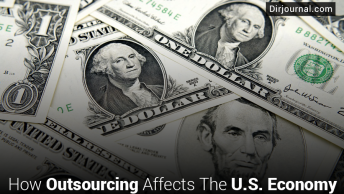Like it or not, oil drives much of the world’s economy. Some would argue it also drives the world’s politics, although that is certainly debatable. Oil has had a stellar year in 2007 thanks to increased demand from countries such as China and India while ongoing struggles in Iraq and Nigeria caused concerns about a potential shortage. The average price of a barrel of oil in 2007 was $71.20. Last week, however, that same barrel cost $100. Apparently $100 is the magic number because the World Bank is now expecting prices to fall steadily for the next few years.
Oil Demand
Industrialized nations rely heavily on crude oil for any number of reasons. Cars, homes, businesses, plants and more all run on byproducts of crude oil. Oil is essential to creating energy and that energy effectively drives industry. The world needs oil, and as more oil is demanded, concern grows that something might happen to the supply causing a worldwide shortage.
Granted, oil is a fossil fuel which will eventually run out. Oil takes millions of years to form underground and there simply isn’t time to brew another batch when the current one is all used up. That concern, while entirely justified and extremely worrisome, isn’t prevalent in the world markets of today. Today, the supply of oil is handled by individual countries.
Oil is a bargaining chip and sometimes a cause for military action. The more oil a country controls, the more power it has over its allies and enemies. Fortunately for most of the world, a large number of substantial oil producing countries are members of the Organization of Petroleum Exporting Countries (OPEC) which controls oil price fluctuations that are not necessary or could be harmful to other countries. This is one of the few safety measures in the global oil marketplace.
Not So Simple Economics
It seems as though oil prices are completely economically driven. There is a limited supply and a high level of demand. The higher the demand and more limited the supply, the higher prices will go. Should demand drop or supply increase, prices will drop accordingly. While this basic principle of economics does a great deal to determine prices, a large percentage of the oil prices are established by global tensions and currency.
Currency exchange rates can account for up to $20 per barrel of oil. Another $15 can come from geopolitical risk factors. That number might climb even higher in 2008. This means that $35 is tacked on the true economic price of oil. If this is true, oil is really only about $60 barrel which is just above the cost of production.
The Slow Down
Many things will contribute to the anticipated decrease in oil prices. For one, the high price of oil is simply making it less desirable. As more people, companies and countries find ways to cut back on oil consumption, demand will slack off a bit. Already demand is holding steady rather than continuing to increase.
As demand falls, the supply will automatically grow simply because less oil is being purchased thanks to decreased global need. This means prices will fall as producers try to move oil at previous levels.
Finally, the economy is shifting a bit which may finally strengthen the dollar. If this happens, the $20 currency exchange rate should fall also helping prices to fall.
While there is almost no argument that prices will indeed begin to drop, that drop will be slow and steady over the next few years signaling a normal shift in the marketplace – certainly not a cause for crisis or even concern for most consumers.












